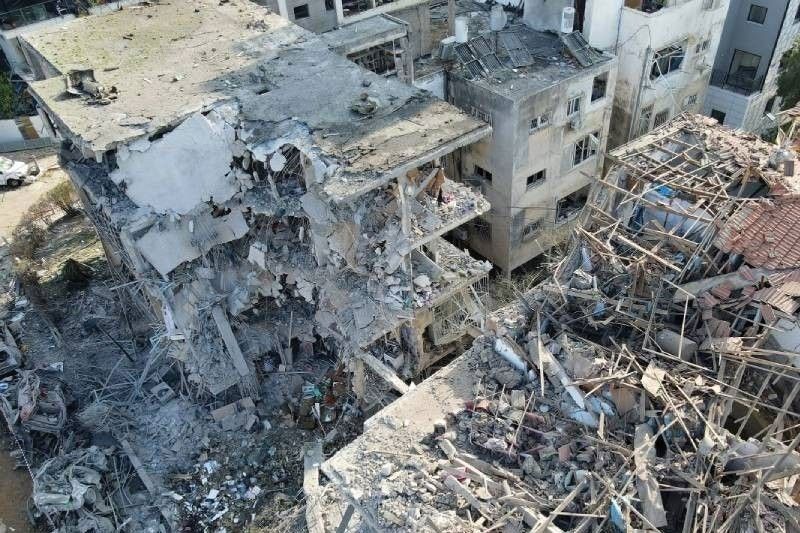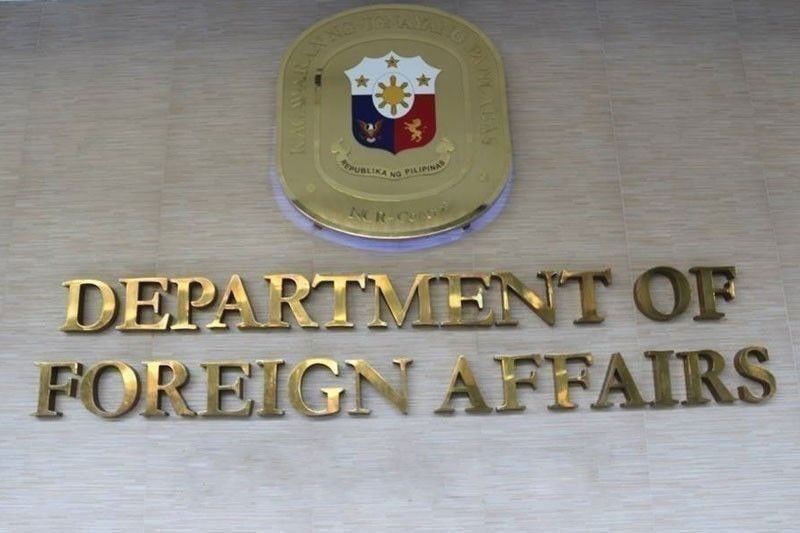
Upgrade to High-Speed Internet for only ₱1499/month!
Enjoy up to 100 Mbps fiber broadband, perfect for browsing, streaming, and gaming.
Visit Suniway.ph to learn
MANILA, Philippines — The prosecutor of the International Criminal Court (ICC) has been given until July 1 to complete the disclosure of evidence that would be used during the hearing in September on confirmation of charges of crimes against humanity against former president Rodrigo Duterte.
In a 20-page order dated April 17, the ICC Pre-Trial I stressed the need for the prosecution to “expeditiously discharge its disclosure obligations as soon as practicable” to allow the defense to prepare for the confirmation hearing. Disclosure of evidence is required by the Rome Statute, the treaty that established the ICC.
“It is part of the defendant’s right to be provided with the evidence on which the Prosecutor intends to rely during the confirmation of charges hearing,” ICC spokesman Fadi El Abdallah said in an earlier message to The STAR.
“Upholding the defense’s rights is key to ensure the fairness of the proceedings,” he added.
In an earlier filing, ICC prosecutor Karim Khan said they intended to “complete the review and disclosure of evidence currently in its possession” no later than 30 days before the confirmation hearing on Sept. 23.
But the judges ruled that disclosure of evidence, at least for the purposes of the confirmation of charges, should be completed much earlier.
“Any items of evidence submitted after that date will not be taken into account for the purposes of the confirmation of charges hearing,” read the ruling.
In the same ruling, the pre-trial chamber judges also reminded parties that “the confirmation of charges procedure is of a limited scope and should not devolve into a mini-trial.”
“The Chamber also reiterates that, as established in numerous decisions issued in other cases, the Prosecution should only disclose evidence that is of true relevance to the case and capable of supporting a particular factual allegation underlying the requisite legal elements,” it said.
“The disclosure of a considerable volume of evidence for which it is difficult or impossible to comprehend the usefulness and relevance for the case merely puts the Defense in a position where it cannot genuinely exercise its rights,” it added.
Evidence
In an April 4 filing, Khan told the judges that they were still in the process of determining the overall quantity of written and non-written documentary evidence to be presented during the September hearing.
But at the minimum, he said these would include most of the evidence cited in the original application for an arrest warrant against the former president.
These include 8,565 pages comprising 421 pieces of written evidence, nine photographs and 30 audio-visual files with a total running time of 15 hours and 55 minutes.
Last March 21, the prosecution confirmed that it has already disclosed to Duterte’s defense 181 items comprising 2,787 pages.
There were also 160 items, including 15 audio-visual files with a duration of over five hours.
According to Khan, they intend to call a maximum of two witnesses to testify viva voce at the confirmation hearing.
He did not identify the said witnesses, noting that they may require “protective measures” in the event that they are called to testify.
Khan said they would also request the chamber to withhold the identity of several witnesses.
“Individual risk assessments are in process for each witness whose identity cannot yet be disclosed,” he added.
The confirmation of charges hearing is part of the ICC procedure where pre-trial judges determine if there is enough evidence for the case to go to trial.
If the charges are confirmed, the case is assigned to a trial chamber, where additional evidence may be presented.
Defense plea rejected
Meanwhile, ICC pre-trial judges have rejected the proposal of Duterte’s defense team to limit the verification process for the victims of his bloody drug war.
In a 20-page order on the conduct of confirmation proceedings, the ICC Pre-Trial Chamber I accepted the proposal of the ICC Registry regarding the types of documents that may be accepted to identify victims who wish to participate in the proceedings.
The Registry, which is in charge of “non-judicial aspects of the administration and the servicing of the court,” earlier submitted a list of 30 identification documents that it recommended to be accepted as proof of identity for victim-applicants and persons acting on their behalf.
It noted that while the Philippines has ongoing initiatives to establish a centralized national identification system, there is a backlog in the distribution of national ID cards.
Defense lawyer Nicholas Kaufman, in response to the Registry’s proposal, said “the non-sequential list provided by the Registry unjustifiably expands the identification regime set out by the Philippine Social Security System (SSS).”
He said the Pre-Trial Chamber should “insist on the production of a national identity card and or a passport containing an up-to-date photograph.”
In their absence, he said other identification documents should be accepted in a “staggered fashion” mandated by the Philippines’ SSS.
“Limiting the range of identity documents enhances the reliability of the identity verification process and significantly reduces the risk of fraud. The use of varied and insufficiently verified identity documents could lead to misidentification, double-counting and the inclusion of false victims – issues that could trigger unnecessary and time-consuming litigation,” wrote Kaufman.
‘Out of touch’
Lawyers representing the victims called out Kaufman’s position as “out of touch and harsh.”
In their ruling, the Pre-Trial Chamber judges said the Registry was able to provide sufficient information regarding each document that it proposes to accept as proof of identity for the victims.
“This information, together with the procedure for admission of victims to participate in the proceedings adopted above, already ensures the ‘reliability of the identity verification process and significantly reduces the risk of fraud,’” read the order dated April 17.
Aside from a passport and the national ID card, other accepted documents are SSS card, Government Service Insurance System ID card or GSIS Unified Multi-Purpose ID card, driver’s license, Professional Regulatory Commission ID card, Overseas Workers Welfare Administration ID or e-card, Department of Labor and Employment card, voter’s certification with dry seal, firearms license, senior citizen ID card and persons with disabilities ID card.
Also to be accepted are National Bureau of Investigation clearance, Alien Certificate of Registration ID card, PhilHealth ID card, airman’s license, Pag-IBIG Loyalty Card, Integrated Bar of the Philippines ID card, Pantawid Pamilyang Pilipino Program ID card, school ID or certificate of enrolment/registration with photo and the institution’s dry seal, taxpayer identification number card, postal ID card, barangay certification, seaman’s book, police clearance, cedula or community tax certificate, marriage certificate, birth certificate, solo parents ID card and baptismal certificate.
In the absence of such identity documents, victims may also submit a declaration signed by two witnesses, along with the witnesses’ identity documents.
“The Chamber, agreeing with the Defense’s suggestion, considers that, should applicants rely on such signed and witnessed declarations or any documents other than those accepted above, the Chamber will decide whether to accept such documents on an ad hoc basis, upon receipt of the Registry’s assessment and recommendations,” read the ruling.

 2 months ago
27
2 months ago
27



